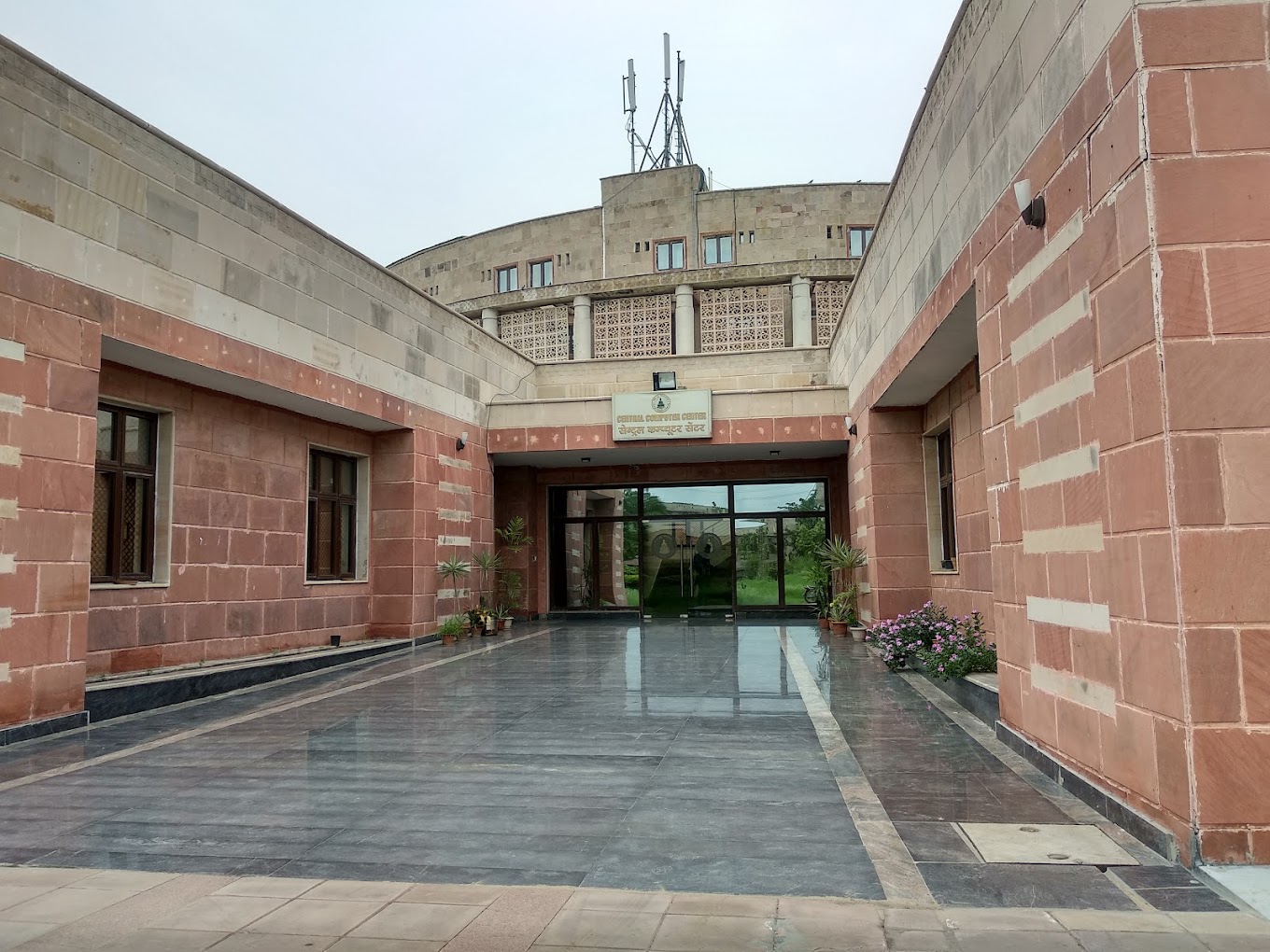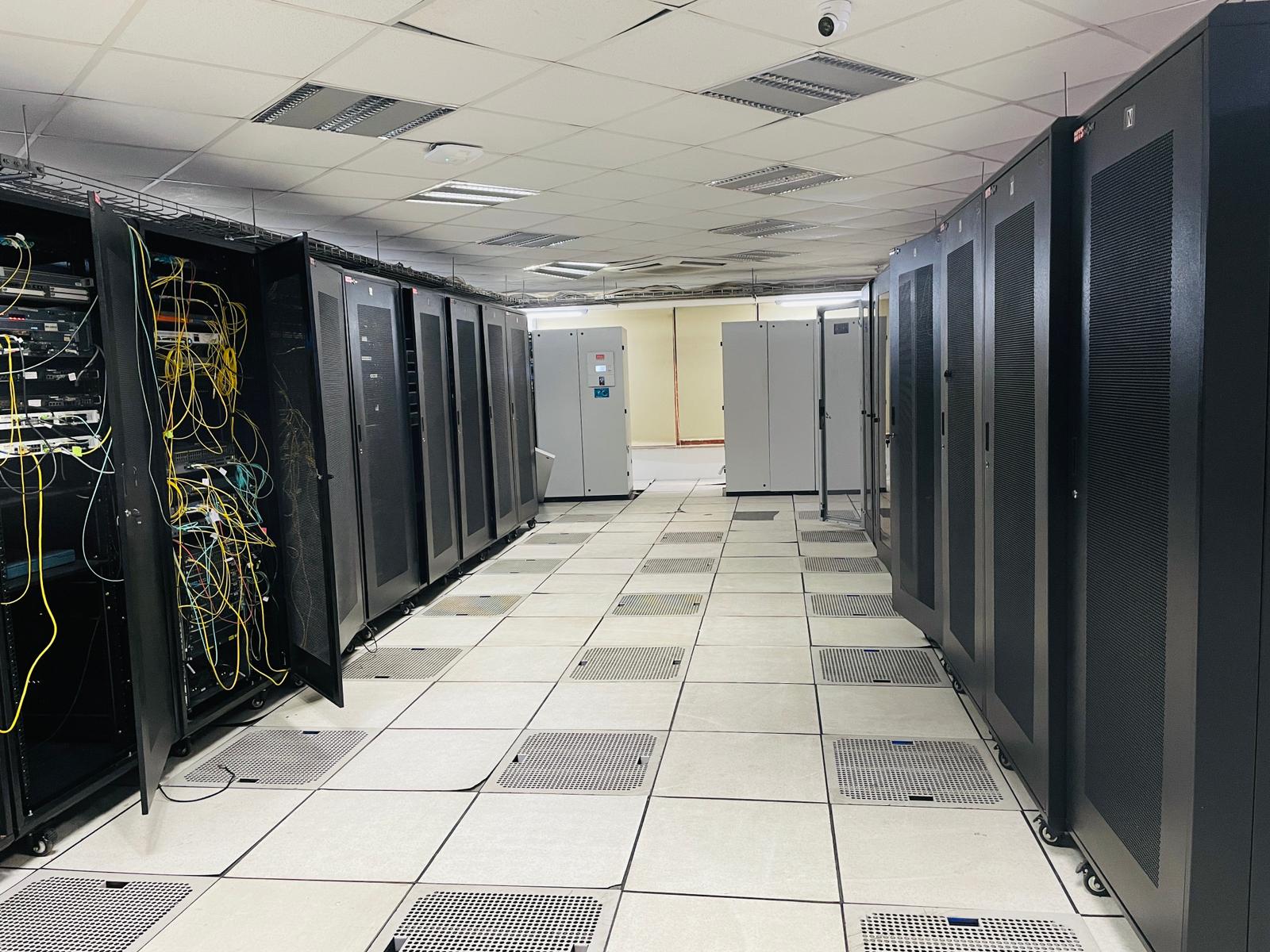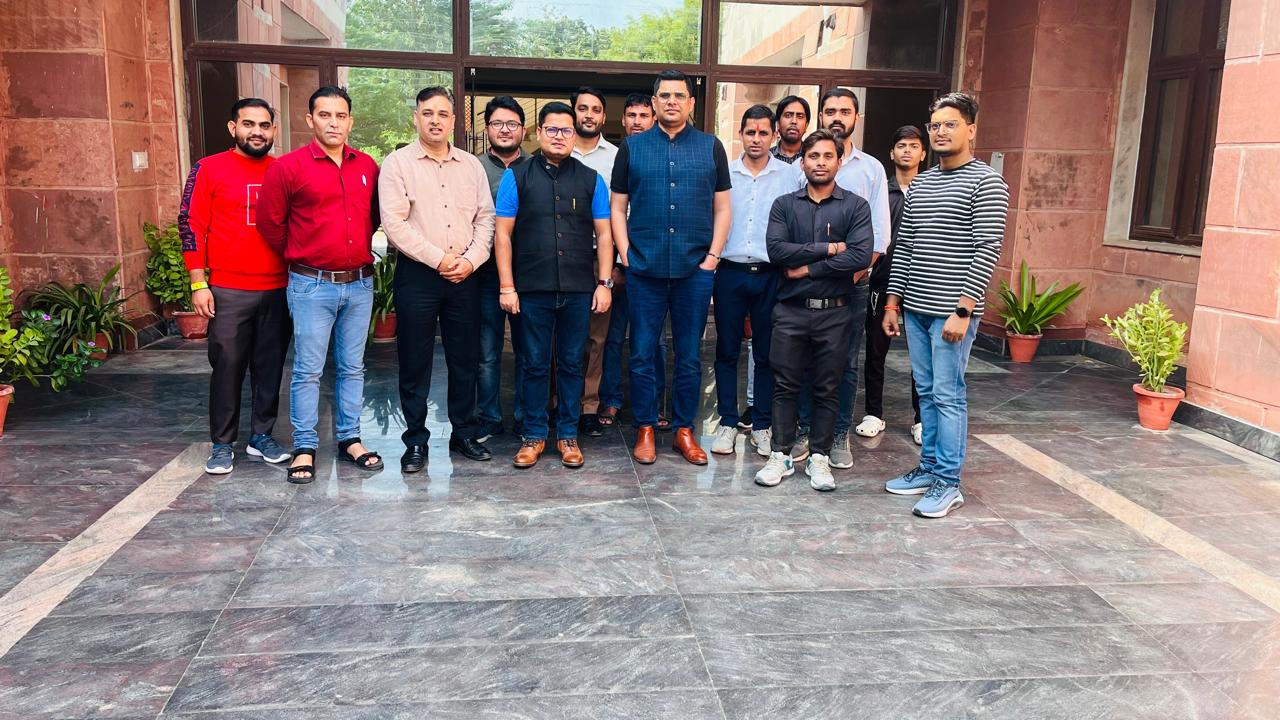Email handling system managing sending and receiving messages.
About Us
- The Central Computer Center is a central facility that caters to the computing needs of faculty, staff, and students. This facility operates 24x7 throughout the year, serving as the hub for computer-related services on the campus. It is well-equipped with advanced computers, necessary peripherals, and essential software. Additionally, the Central Computer Centre is equipped with power backup through two high-end 80KVA UPS units and a generator set. Air conditioning is provided by a precision AC & VRV AC plants.
- Linux/Windows desktops are accessible in all classrooms across various school labs to facilitate e-learning and interactive lab sessions during classes. The CCC network backbone operates on Fiber Optic connectivity, interconnecting the computer centre, Schools of Studies, and administrative offices. The University is equipped with a 2 Gbps bandwidth for Internet connectivity obtained from the National Knowledge Network (NKN) and other ISPs.

Servers
Software that serves web pages to users upon request over the internet.
Translates domain names to IP addresses for internet communication.
A DHCP Server automatically assigns IP addresses to devices on a network.
Centralized storage system for sharing files over a network.
A proxy server intermediates requests between clients and external servers.
A Backup Server stores copies of data for disaster recovery purposes.
Centralized system overseeing network performance and security.
Libsys Server, Matlab, SPSS(Statistical Package for the Social Sciences)
FAQ's
- Without harping on the subject - keep your antivirus up to date and protect yourself from trojans!
- If you must store personal information on your machine, encrypt it.
- Use strong passwords, that is: Use minimum 8 characters long combination of Alpha-Numeric and Special symbols meaningless words (e.g. A@20$z_Y).
- Keep your Operating System and Applications up to date and patched against the latest discovered vulnerabilities.
- Do not run files that are sent to you, unless you are completely sure of their integrity.
- Do not click on hyperlinks from people you don't know.
- Install a firewall application, particularly if you are connected to internet.
- Ensure that the browser you use supports security and is capable of encrypting information that you may send.
- If you are getting rid of an old machine, ensure that you have wiped the hard disk (using a wiping utility) deleting the files is not precaution enough.
- Read website security and privacy policies.
Directory
| Name Designation | Contact No. | Email ID |
|---|---|---|
| Dr. Sandeep Singh Rana (System Manager) | +91 120-234 4246 | sandeep@gbu.ac.in |
| Mrs. Pallavi Upadhyay (Technical Superintendent) | +91 120-234 6232 | pallavi@gbu.ac.in |
| Mr. Raj Kumar (Technical Superintendent) | +91 0120-234 6234 | raj.kumar@gbu.ac.in |
| Mr. Kailash Chand Sharma (Technical Asistant) | +91 120-234 6237 | ksharma@gbu.ac.in |
| Mr. Abhishek Tripathi (Web Developer, B.tech CS) | - | at5642tripathi@gmail.com |





